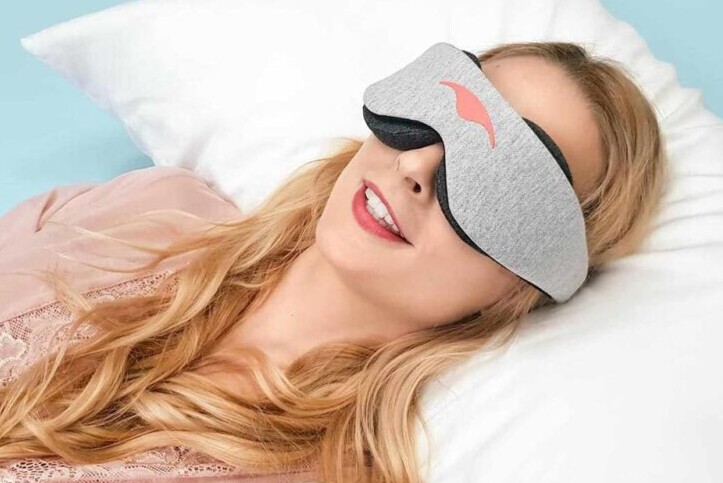Think back to the time when falling asleep meant counting sheep or drinking herbal teas. Sleep aids were as simple as they get. As years rolled on, folks started looking to science for better ways to rest. We moved from basic sleep masks to mechanical alarm clocks with soothing sounds, and eventually to high-tech gadgets promising a perfect night’s sleep.
Key milestones are crucial to understand how far we’ve come. The development of memory foam mattresses in the 1960s transformed how we think about comfort. By the 1990s, sleep studies began to highlight the importance of sleep health, paving the way for modern sleep tech innovations. Smartphone integration in the 2010s kicked off the era of smart sleep devices. These gadgets not only monitor our sleep but also offer insights on how to improve it.
Today, the market for sleep tech is booming. People are more aware of the importance of quality sleep, and they’re willing to invest in it. From devices that monitor sleep stages to apps that play binaural beats, the variety is huge. Consumer preferences have shifted; everyone is looking for that personalized touch that fits their unique sleep needs.
This evolution isn’t just about technology; it’s about how our understanding of sleep has changed. We’re recognizing the critical role of sleep in overall health and well-being, making the strides in sleep technology not just fascinating but incredibly important.
Smart Sleep Devices: Transforming the Way We Rest
Smart sleep devices are shaking up our nightly routines. These high-tech gadgets range from smart mattresses that adapt to your body shape to sleep trackers that analyze your sleep patterns in real-time. Ever tried a white noise machine? It masks background noise, helping you drift off faster and sleep more soundly.
Here’s how they work. Smart mattresses use sensors to measure and adjust firmness levels throughout the night. Sleep trackers, worn as wristbands or placed under the mattress, track your sleep cycles, providing detailed reports on your phone. These reports analyze how much time you spend in each sleep stage, offering advice to optimize your rest. White noise machines emit soothing sounds like rain or ocean waves, promoting relaxation and sleep.
What’s amazing is the feedback from users. Many swear by these devices, saying they’ve never slept better. Detailed sleep reports have helped some folks identify patterns, like how late-night screen time affects their rest. Smart mattresses can adjust in real-time, meaning fewer nighttime awakenings. White noise machines, particularly for light sleepers or people living in noisy areas, have proven to be game-changers.
Thinking about trying one? Consider your sleep issues and preferences. If waking up often bothers you, a smart mattress could be a great solution. Struggling with consistent sleep patterns? A sleep tracker might be your best bet. And for those constantly disturbed by noise, a white noise machine could be the answer to a peaceful night. Each gadget offers unique benefits, but the goal remains the same: better, more restful sleep.
Examples of Sleep Gadgets and Tech :
Benefits and Limitations of Sleep Gadgets
Sleep gadgets have plenty of perks. Improved sleep patterns top the list. Many users report falling asleep faster and experiencing deeper sleep. This, in turn, boosts mood, alertness, and overall well-being. Imagine waking up refreshed instead of groggy. That’s the promise these devices offer.
Yet everything has its flip side. Overreliance is a concern. Some people become too dependent on these gadgets, losing the ability to sleep well without them. Another issue is data privacy. These devices collect a lot of personal information, and not everyone is comfortable with that. It’s crucial to weigh these factors before fully committing to any sleep tech.
Health experts have their say, too. Many endorse the use of these gadgets but advise caution. Monitoring your sleep can be beneficial, but it should not replace professional medical advice. Specialists often highlight the importance of balancing tech with natural sleep habits like maintaining a regular sleep schedule and creating a restful environment.
For anyone considering sleep gadgets, it’s wise to take a balanced approach. Use the tech to enhance your sleep, but don’t let it rule your nights. Always combine it with tried-and-true sleep hygiene practices. Reading reviews and seeking advice from healthcare professionals can also provide valuable insight. Finding what’s best for you might take some trial and error, but your body will thank you once you get it right.
The Future of Sleep Technology: What’s Next?
Sleep technology is evolving rapidly. Emerging trends are poised to take sleep tech to new heights. One of the most exciting developments is the use of artificial intelligence. AI can analyze sleep data more accurately, providing personalized recommendations based on individual sleep patterns. Machine learning algorithms can predict your sleep needs, offering real-time adjustments to your sleep environment.
Cutting-edge innovations are also exploring new territory. Wearable sleep tech is expanding beyond trackers to include devices that actively improve sleep quality. Think of smart wristbands that not only monitor but also gently vibrate at the optimal wake-up time or even thermal pillows that adjust their temperature to match your sleep cycle.
The potential for these innovations is immense. Imagine a future where your bedroom automatically adapts based on your sleep stages. Lights dim gradually as you fall asleep and brighten just before you wake up. The room’s temperature adjusts to your body heat, ensuring a perfect sleep climate throughout the night.
Looking ahead, the next decade promises significant advances. Sleep tech will likely become more integrated into our homes and daily lives. The emphasis will be on creating holistic sleep solutions that encompass every aspect of the sleep environment. As these technologies advance, they will not only improve sleep quality but also contribute to better overall health. Preparing for this future means staying informed and ready to embrace these new advancements.

